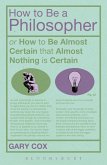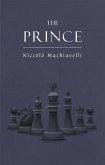Machiavelli's influence on modern politics and the importance of his thought for the development of modern political ideas has long been universally acknowledged. The Prince has become a key text in Philosophy and Political Theory, one that is widely read and studied. Machiavelli's most important work is a hugely exciting, yet challenging, piece of philosophical writing.
In Machiavelli's 'The Prince': A Reader's Guide, Miguel Vatter offers a clear and thorough account of this key philosophical work. Setting Machiavelli's text in its historical and philosophical context, the book offers a detailed review of the key themes (epistemological, social, ethical and theological-political) and a lucid commentary that will enable readers to rapidly navigate the text. Geared towards the specific requirements of students who need to reach a sound understanding of the text as a whole, the guide explores the complex and important ideas inherent in the text and provides a cogent survey of the reception and influence of Machiavelli's work. This is the ideal companion to study this most influential of texts.
In Machiavelli's 'The Prince': A Reader's Guide, Miguel Vatter offers a clear and thorough account of this key philosophical work. Setting Machiavelli's text in its historical and philosophical context, the book offers a detailed review of the key themes (epistemological, social, ethical and theological-political) and a lucid commentary that will enable readers to rapidly navigate the text. Geared towards the specific requirements of students who need to reach a sound understanding of the text as a whole, the guide explores the complex and important ideas inherent in the text and provides a cogent survey of the reception and influence of Machiavelli's work. This is the ideal companion to study this most influential of texts.
This is a lively, original and bracing account of Machiavelli's revolutionary intervention in the history of political thought. In short compass, Vatter deftly explicates Machiavelli's critique of the classical and medieval natural law tradition, his Lucretian revaluation of contingency, his anticipations of liberal and democratic theory, and his complex attitude towards religion. I enthusiastically recommend this wonderful reader's guide. Victoria Kahn, Katharine Bixby Hotchkis Chair in English, University of California, Berkeley, USA 20130402









